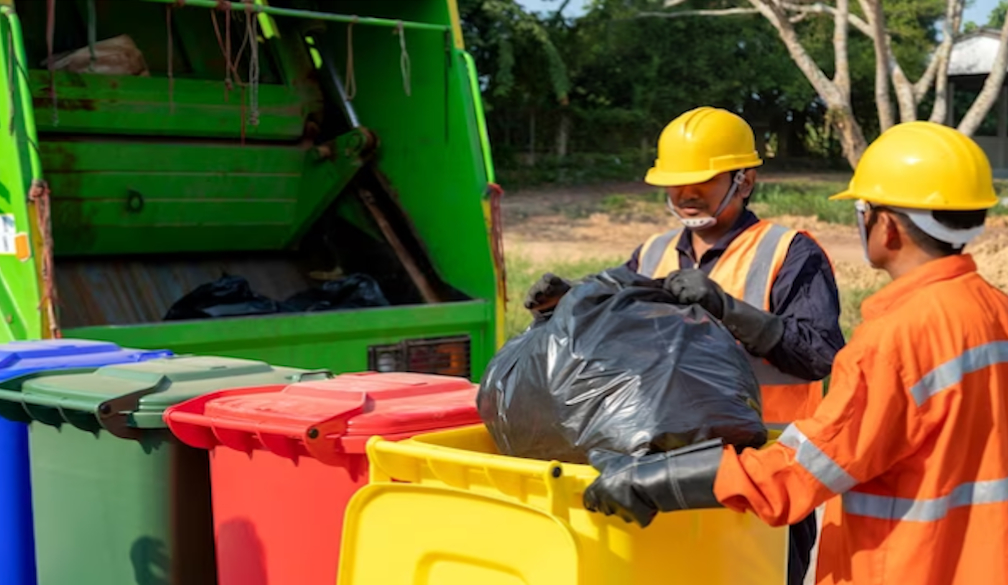Hire a Professional Waste Management Consultant to Improve Efficiency

In our fast-paced and consumption-driven world, the management of waste has become an increasingly complex challenge. As communities and industries grapple with the environmental impacts of their refuse, the need for effective waste management solutions has never been more critical. Enter the unsung hero of sustainability – the waste management consultant. In this article, we will explore the vital role these consultants play in addressing our waste-related woes and creating a more sustainable future.
Understanding the Landscape
Before delving into the specifics, let's take a moment to appreciate the vast landscape of waste management. It's not just about collecting and disposing of trash; it's a nuanced process involving waste reduction, recycling, and the development of eco-friendly alternatives. A waste management consultant is essentially a guide through this labyrinth, helping businesses and communities navigate the complexities of waste.
Tailored Solutions for Businesses
Businesses, both large and small, are under increasing pressure to adopt sustainable practices. A waste management consultant becomes a strategic partner, tailoring solutions to the unique needs of each enterprise. They conduct comprehensive waste audits, analyzing the types and volumes of waste generated. This information becomes the foundation for developing customized waste management plans that minimize environmental impact while optimizingcost efficiency.
Promoting the Three Rs: Reduce, Reuse, Recycle
One of the core philosophies embraced by waste management consultants is the famous trio: Reduce, Reuse, Recycle. Consultants work hand in hand with businesses to implement strategies that reduce the generation of waste in the first place. This might involve introducing more sustainable packaging, promoting employee awareness programs, or encouraging the use of reusable materials.
The second 'R,' Reuse, is equally crucial. Waste management consultants advise businesses on how to incorporate circular economy principles, and find ways to repurpose materials within their operations. This not only reduces waste but also contributes to a more sustainable and resilient supply chain.
Of course, recycling is a key focus as well. Waste management consultants stay abreast of the latest recycling technologies and collaborate with recycling facilities to ensure that materials are diverted from landfills and given a second life.
Community Engagement and Education
Waste management is not solely the responsibility of businesses; it's a collective effort that involves communities at large. Waste management consultants are instrumental in fostering community engagement and education initiatives. Through workshops, seminars, and outreach programs, they empower individuals to make informed choices about waste disposal and recycling.
A waste management consultant acts as a bridge between the technicalities of waste management and the everyday lives of community members. By breaking down complex concepts into digestible information, they inspire individuals to participate in sustainable practices, fostering a sense of environmental responsibility.
Navigating Regulatory Compliance
The regulatory landscape surrounding waste management is constantly evolving. Businesses must adhere to a myriad of local, state, and federal regulations. Navigating this regulatory maze can be daunting, but waste management consultants serve as guides, ensuring that businesses remain compliant.
By staying informed about the latest environmental laws and regulations, consultants help businesses implement practices that not only meet legal requirements but also contribute to a positive environmental impact. This proactive approach not only prevents legal complications but also positions businesses as responsible corporate citizens.
Adapting to Emerging Trends
In the ever-evolving field of waste management, staying ahead of emerging trends is crucial. Waste management consultants act as scouts, keeping a watchful eye on technological advancements, innovative recycling methods, and global sustainability trends. By integrating these trends into their recommendations, consultants help businesses future-proof their waste management strategies.
Conclusion
In the grand tapestry of environmental conservation, waste management consultants weave a crucial thread. Their expertise extends beyond mere trash disposal – they are architects of sustainable change, guiding businesses and communities toward a greener future. As we navigate the challenges of waste management in the 21st century, the role of these consultants becomes increasingly indispensable, offering not only solutions but a vision of a world where waste is not a problem but a resource waiting to be harnessed for the benefit of all.







